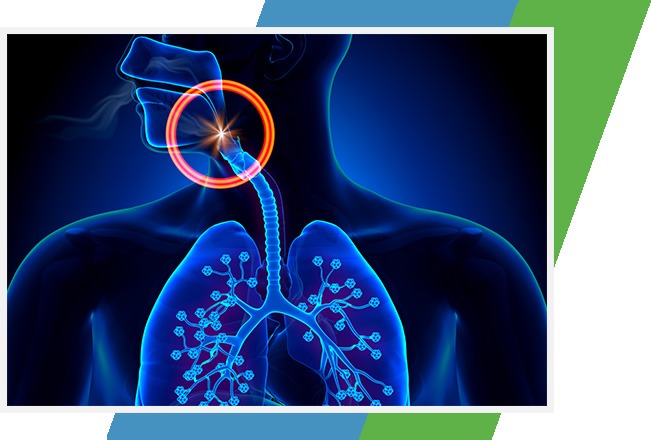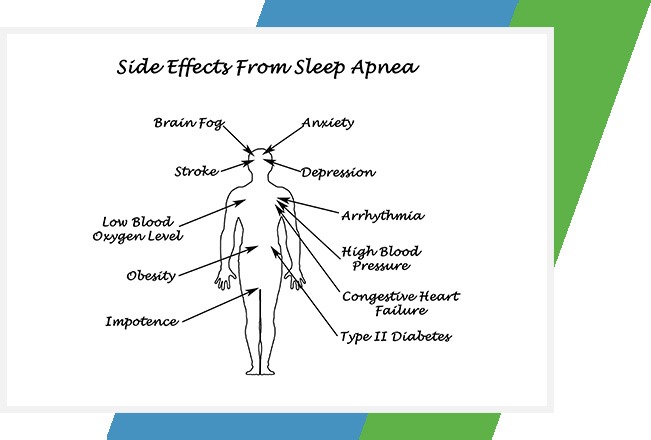Do you wake up at night feeling like you cannot breathe? Does your partner say you snore or stop breathing during the night? Do you wake up frequently to go to the washroom? Or do you awaken in the night and cannot get yourself back to sleep? These are all warning signs that something is not quite right with your sleeping patterns. They are signals that you may be suffering from a sleep disorder. Sana Dental is pleased to offer treatment options for your sleep apnea ( sleep loss syndrome)
Your Alberta Choice for Sleep Apnea Treatment!



What Is Sleep Apnea?

Sleep apnea is a serious and potentially dangerous chronic sleep disorder. Sleep apnea causes your breathing to stop momentarily while you sleep. During these episodes of interrupted breathing, your blood oxygen level drops. This drop in blood oxygen causes your brain to awaken and resume breathing. Although you most likely are not conscious of these episodes, and may not remember them in the morning, they can disrupt your sleep.
Sleep apnea is often classified by its severity, which is based on how often your apneas occur and how low your blood oxygen level goes. Being awakened continually throughout the night can make it very difficult for you to reach and remain in the deeper stages of sleep that are important to physical and mental rejuvenation.
Sleep Apnea: The Danger Of Not Sleeping Well

Sleep Loss Symptoms Can Be A Clue You Have A Sleep Disorder
If you consistently wake up feeling tired, even when you have slept a full eight hours, or if you often wake up with a headache or a sore throat, you could be suffering from a sleep disorder. Other signs of a sleep problem include snoring and difficulty staying awake during the day.
Sleep apnea can cause sleep deprivation and health issues. This is due to a lack of sleep and oxygen. As you stop breathing frequently during the night, your brain wakes you up to resume breathing. Over time these brief but frequent awakenings can take their toll.

The Impacts Of Untreated Sleep Apnea and Potential Comorbidities
- Fatigue: Fatigue is much more than just being tired. When you are sleep deprived, physical and mental weariness can have a significant impact on your ability to stay alert and function normally throughout the day.
- Impaired brain function: Repeated occurrences of oxygen debt can impair your cognitive behavior and functionality. Foggy thinking, short-term memory loss, and the inability to concentrate are some signs that your brain is short on oxygen.
- Depression and irritability: Chronic fatigue and cognitive impairment caused by sleep deprivation and oxygen debt can lead to irritability and depression. Life takes energy, and when you don’t have it, the day-to-day challenges we all face can become overwhelming.
- Health issues: The repeated cessation of breath due to sleep apnea decreases the amount of oxygen in your blood, which causes the nervous system to panic. When this happens, emergency signals are sent to your brain and muscles. This is your naturally occurring “fight or flight” response. When your “fight or flight” response is constantly turned on, however, it can stress your heart muscles, and eventually, put you at greater risk for heart complications and high blood pressure.
- Sexual and relationship problems: Erectile dysfunction is common among men who suffer from sleep disorders. Additionally, snoring can drive couples to sleep in separate rooms – a serious intimacy buster.
- Increased risk of accidents: Fatigue and sleep deprivation can put you at a greater risk of being involved in an accident while driving or operating dangerous machinery due to cognitive impairment. Your reaction time is much slower when you are overtired and it is more difficult to stay awake at the wheel.
Work performance problems: Daytime sleepiness and cognitive impairment can make it difficult to focus, think productively, and stay awake, affecting the quality of your work and your productivity.


